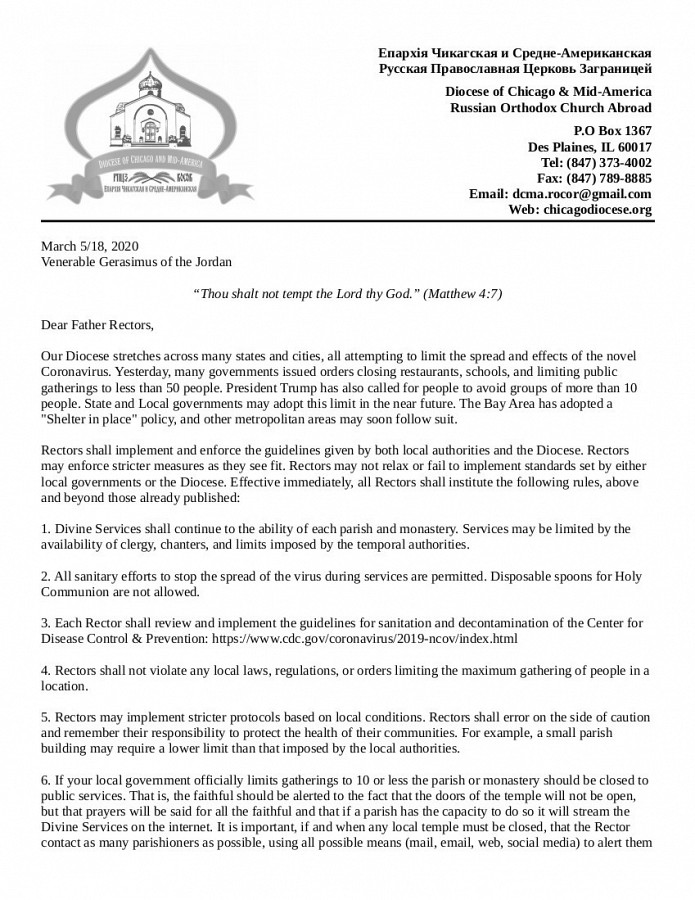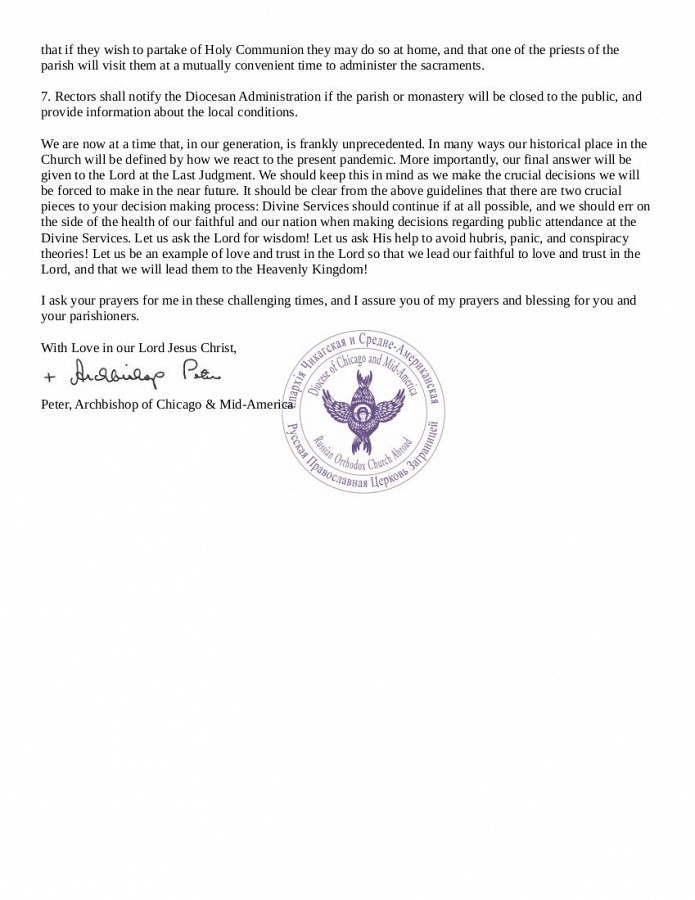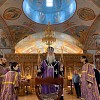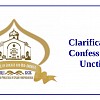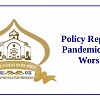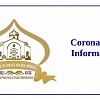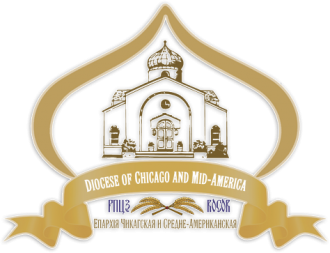March 4/17, 2020
Venerable Gerasimus of the Jordan
“Thou shalt not tempt the Lord thy God.” (Matthew 4:7)
Dear Father Rectors,
Our Diocese stretches across many states and cities, all attempting to limit the spread and effects of the novel Coronavirus. Yesterday, many governments issued orders closing restaurants, schools, and limiting public gatherings to less than 50 people. President Trump has also called for people to avoid groups of more than 10 people. State and Local governments may adopt this limit in the near future. The Bay Area has adopted a "Shelter in place" policy, and other metropolitan areas may soon follow suit.
Rectors shall implement and enforce the guidelines given by both local authorities and the Diocese. Rectors may enforce stricter measures as they see fit. Rectors may not relax or fail to implement standards set by either local governments or the Diocese. Effective immediately, all Rectors shall institute the following rules, above and beyond those already published:
1. Divine Services shall continue to the ability of each parish and monastery. Services may be limited by the availability of clergy, chanters, and limits imposed by the temporal authorities.
2. All sanitary efforts to stop the spread of the virus during services are permitted. Disposable spoons for Holy Communion are not allowed.
3. Each Rector shall review and implement the guidelines for sanitation and decontamination of the Center for Disease Control & Prevention: https://www.cdc.gov/coronavirus/2019-ncov/index.html
4. Rectors shall not violate any local laws, regulations, or orders limiting the maximum gathering of people in a location.
5. Rectors may implement stricter protocols based on local conditions. Rectors shall error on the side of caution and remember their responsibility to protect the health of their communities. For example, a small parish building may require a lower limit than that imposed by the local authorities.
6. If your local government officially limits gatherings to 10 or less the parish or monastery should be closed to public services. That is, the faithful should be alerted to the fact that the doors of the temple will not be open, but that prayers will be said for all the faithful and that if a parish has the capacity to do so it will stream the Divine Services on the internet. It is important, if and when any local temple must be closed, that the Rector contact as many parishioners as possible, using all possible means (mail, email, web, social media) to alert them that if they wish to partake of Holy Communion they may do so at home, and that one of the priests of the parish will visit them at a mutually convenient time to administer the sacraments.
7. Rectors shall notify the Diocesan Administration if the parish or monastery will be closed to the public, and provide information about the local conditions.
We are now at a time that, in our generation, is frankly unprecedented. In many ways our historical place in the Church will be defined by how we react to the present pandemic. More importantly, our final answer will be given to the Lord at the Last Judgment. We should keep this in mind as we make the crucial decisions we will be forced to make in the near future. It should be clear from the above guidelines that there are two crucial pieces to your decision making process: Divine Services should continue if at all possible, and we should err on the side of the health of our faithful and our nation when making decisions regarding public attendance at the Divine Services. Let us ask the Lord for wisdom! Let us ask His help to avoid hubris, panic, and conspiracy theories! Let us be an example of love and trust in the Lord so that we lead our faithful to love and trust in the Lord, and that we will lead them to the Heavenly Kingdom!
I ask your prayers for me in these challenging times, and I assure you of my prayers and blessing for you and your parishioners.
With Love in our Lord Jesus Christ,
Archbishop Peter
|
| ||||||||||||
